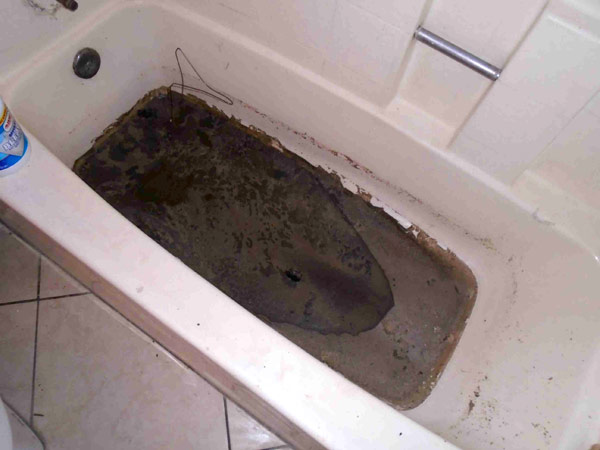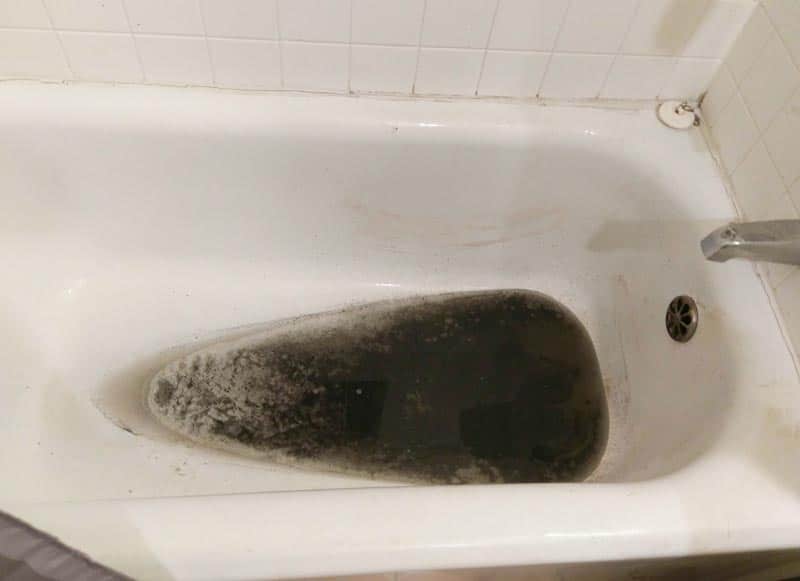Causes for Discharge Rising Through the Bathtub
Causes for Discharge Rising Through the Bathtub
Blog Article
What're your opinions concerning Why sewage is coming up through your bathtub?

Sewage back-up in the tub can be a distressing and unhygienic problem for any kind of home owner. Not just is it troublesome, however it additionally poses significant wellness dangers and shows underlying issues with the plumbing system. Recognizing why sewer is turning up through the bathtub is critical for taking proper action to resolve the issue effectively.
Introduction to the Issue
Recognizing the Problem
When sewage starts backing up right into the tub, it's a clear sign of an issue with the drainage system. The wastewater that ought to be flowing away from your home is instead discovering its way back into your home, which can bring about considerable damages and carcinogen.
Potential Reasons
Several elements can contribute to sewer backup in the tub. From obstructions in the drain line to problems with the plumbing facilities, recognizing the source is vital for discovering a remedy.
Usual Factors for Sewage Back-up
Obstructions in the Sewage System Line
One of one of the most usual sources of sewage backup is a blockage in the drain line. This can happen due to the accumulation of debris, grease, or foreign things in the pipelines, stopping proper flow and creating sewage to back up right into your bath tub.
Tree Root Breach
Tree roots looking for dampness and nutrients can penetrate sewage system lines with tiny splits or joints. In time, these origins can grow and increase, causing significant damage to the pipelines and causing sewage backup concerns.
Aging Facilities
Older homes may have dated plumbing systems that are more at risk to rust, cracks, and wear and tear. As pipelines age, they end up being extra susceptible to leakages and obstructions, boosting the likelihood of sewage backup incidents.
Heavy Rainfall or Flooding
During periods of heavy rainfall or flooding, the sewer system might come to be overloaded with excess water, causing back-ups and overflows. This can cause sewer backing up right into bath tubs and other components inside the home.
Health And Wellness Dangers Related To Sewage Back-up
Contamination of Water System
Sewage backup can contaminate the water system in your house, posturing a significant health and wellness danger to you and your family. Direct exposure to polluted water can bring about intestinal issues, skin infections, and other health problems.
Spread of Condition
Sewer has unsafe microorganisms, viruses, and parasites that can trigger a series of diseases, including liver disease, cholera, and gastroenteritis. Entering into contact with sewage or contaminated surface areas puts you at risk of infection.
Mold and mildew Development
Dampness from sewer backup can create suitable problems for mold and mildew development in your home. Mold and mildew spores can aggravate respiratory issues and trigger allergic reactions in sensitive people, making timely cleaning crucial.
Indicators of Sewage Backup
Foul Odors
Unpleasant smells originating from drains or components, especially in the washroom, might suggest sewer back-up issues. These smells are typically strong and persistent, indicating a problem that calls for prompt attention.
Slow Draining Fixtures
Bath tubs, sinks, and commodes that drain gradually or not at all could be experiencing sewer back-up. If numerous components are impacted simultaneously, it's most likely that the problem originates from a typical point, such as the main sewer line.
Gurgling Noises
Odd gurgling or bubbling sounds coming from drains when water is running in other places in the house are indicative of air caught in the plumbing system. This air accumulation can arise from sewage back-up and should be investigated without delay.
Immediate Actions to Take
Shutting Off Supply Of Water
In the event of sewage back-up, it's essential to shut off the water supply to prevent additional contamination and damages. Situate the major water shutoff valve in your home and closed it off up until the problem can be resolved.
Getting In Touch With a Specialist Plumber
Managing sewer backup is not a DIY job. Call a qualified plumber with experience in dealing with sewage-related issues to evaluate the scenario and carry out necessary repairs or cleanups.
Staying Clear Of Contact with Infected Water
Up until the sewer backup is resolved, avoid contact with infected water to prevent the spread of microorganisms and pathogens. Wear protective gear if you have to remain in the affected location and wash your hands thoroughly afterward.
Preventive Measures
Routine Maintenance of Drain Lines
Schedule regular inspections and upkeep of your sewage system lines to determine and address possible concerns prior to they rise right into major troubles. This can consist of cleaning out particles, examining for tree root breach, and fixing any kind of broken pipelines.
Setting Up Bayou Valves
Think about setting up bayou valves in your plumbing system to avoid sewage from receding into your home throughout durations of heavy rainfall or flooding. These shutoffs instantly close when water draws back up, protecting your residential or commercial property from contamination.
Correct Disposal of Family Waste
Avoid flushing anything apart from toilet paper and human waste down the bathroom to prevent clogs and obstructions in the drain line. Dispose of oil, oil, and various other household chemicals effectively to decrease the threat of plumbing problems.
Tidying up After Sewage Back-up
Sanitation Procedures
Thoroughly sanitize and sanitize impacted locations after sewer backup to eliminate dangerous germs and stop mold and mildew growth. Usage proper cleansing items and protective equipment to make sure risk-free and efficient cleaning.
Reconstruction of Impacted Locations
Fix any damages to flooring, walls, or components brought on by sewage backup. Depending upon the degree of the damage, you might require to change carpets, drywall, or various other materials to restore your home to its pre-loss condition.
Why Is Water Backing Up in My Bathtub When I Flush My Toilet?
What to do about a sewer line clog
First, don’t bother with plunging. No amount of plunging will dislodge the clog in a sewer line. The clog is too far away. Plungers are for clogs in the toilet itself, not the sewer line. Plus, the most likely causes of a sewer clog are:
Tree roots Flushed toys or feminine products Grease buildup Those items don’t move easily. And in the case of tree roots, the roots need to be cut out of the pipe and the pipe will need to be repaired.
You’ll need a closet auger. A closet auger is a type of plumber’s snake with a protective cover to keep from scratching the delicate porcelain toilet. If the clog is further down, you may need to remove the toilet or use one of your cleanouts to get to the clog.
We also recommend doing a video inspection of the drain to ensure that the cause of the clog has been completely removed. Otherwise, you could have the same problem again in a few days or weeks.
https://mspplumbingheatingair.com/blog/why-is-water-backing-up-in-my-bathtub-when-i-flush-my-toilet

We hope you enjoyed our post on What To Do If Sewage Starts Backing Up Into the Shower. Thanks a ton for taking a few minutes to read our blog. Liked our blog posting? Please quickly share it. Help others discover it. Thanks a lot for being here. Come back soon.
Click
Report this page